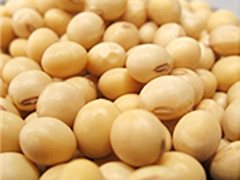To deliver safe and secure soybeans

Sanko shokuhin concludes cultivate contracts with farmers for carefully selected varieties of soybeans produced in Japan, the United States, Canada, China, Russia, and other.
This makes us ensure the quality and quantity of soybeans. In addition, we provide peace of mind with traceability (*3) that can be achieved by contract cultivation, such as non-genetically modified soybeans (*1) and soybeans with measures against residual pesticides (*2).
We also handle a wide variety of soybean-related products, including processed soybeans, dried okara, defatted soybeans, and soy protein products.
Half a century since our founding
We will continue to make tireless efforts to meet the needs of our customers by fully utilizing the soybean know-how we have fostered through our experience and achievements.
In 1986 we inaugurated the Kyushu Branch as a community-based base for food soybean sales in the Kyushu area, and have been supplying a wide variety of soybeans to meet the needs of users, from domestic soybeans to imported soybeans, GMO soybeans to non-GMO soybeans, regular soybeans for food products to variety soybeans (high value-added), to leading manufacturers throughout the Kyushu area. We supply a wide variety of soybeans to leading manufacturers throughout the Kyushu region.
*1:Genetic recombination
"Genetic recombination" is to find a useful gene site of interest in the DNA of an organism, extract it, add it to the DNA of another organism, and replace a part of it. In the agricultural field, genetic recombination technology is used as a means to make conventional breeding more efficient. Specific examples are crops that are resistant to specific pests and specific viruses. It is also used as a means of producing varieties that were not possible with conventional breeding, such as highly nutritious crops such as high oleic acid soybeans, low allergenic crops with low content of allergens, and low allergenic crops.
*2 : Measures against residual pesticides
"Pesticide residue countermeasures" are carried out by putting a frame on the use of pesticides so that the residue is kept below a level that does not adversely affect health even if a person continues to take it for a lifetime. In 1961 (Showa 36), the FAO (Food and Agriculture Organization of the United Nations) and WHO (World Health Organization) jointly held an expert meeting on pesticide residues around the world. Based on the common understanding that it should never happen, the basic response method was decided. Accordingly, each country regulates pesticide residues.
*3 : Traceability
"Trace" means "follow", "ability" means "what you can do", and "traceability" is a combination of this trace and ability. Traceability is the process of tracing the products purchased by customers from the dining table to retail stores, factories, markets, etc., to how farmers produced rice and vegetables.

